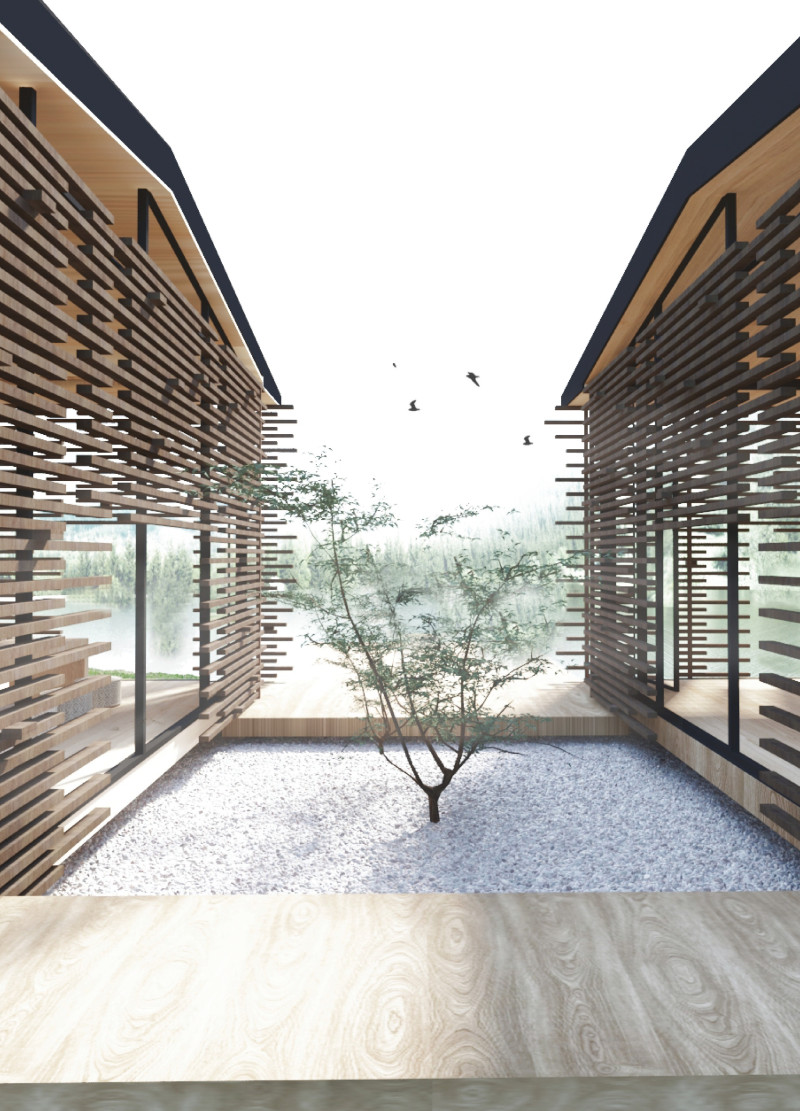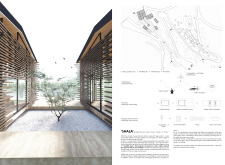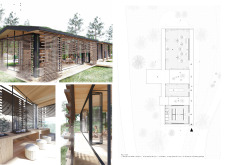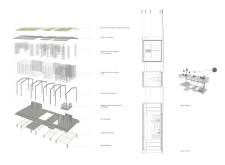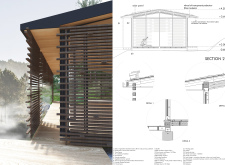5 key facts about this project
The Mindful Shala integrates a peaceful yoga space within a natural setting, focusing on mindfulness and community interaction. Located in a tranquil environment, the Shala is designed to strengthen the connection between users and the landscape. The concept centers around creating a balanced relationship between built elements and nature, offering a welcoming area for yoga practice and reflection.
Design Concept
The Shala features three separate volumes that come together under one roof, with zen gardens positioned between them. This layout enhances visual interest while encouraging moments of calm and contemplation. The design employs open sides and overhanging eaves, characteristics of traditional Shala architecture, allowing natural light and airflow while creating sheltered spaces for gathering.
Mindful Stops
Key to the design are the "mindful stops," which create specific resting areas leading to the Shala. These spaces provide essential transitions that help prepare individuals for their yoga practice, promoting a sense of peace. By encouraging users to pause and connect with their surroundings, the design highlights the principle of mindfulness central to the overall project.
Materiality and Structure
The building's roof incorporates a vegetative system made of sedums and mosses that supports sustainability and enhances thermal performance. The main structural components consist of timber, contributing to a natural appearance and blending well with the environment. Large glass curtain walls allow for broad views, establishing a strong connection between interior spaces and the scenery beyond.
Interior Arrangement
Interior spaces are carefully organized to meet various needs, including areas for practice, relaxation, and social interaction. This thoughtful arrangement creates an inviting and functional atmosphere, accommodating both individual meditation and shared experiences. Each design choice works towards establishing a calm and unified environment, emphasizing the mix of nature and purpose.
The design culminates in zen gardens that provide visual continuity and serve as peaceful retreats, integrating the experience of nature into the Shala's architectural layout.


